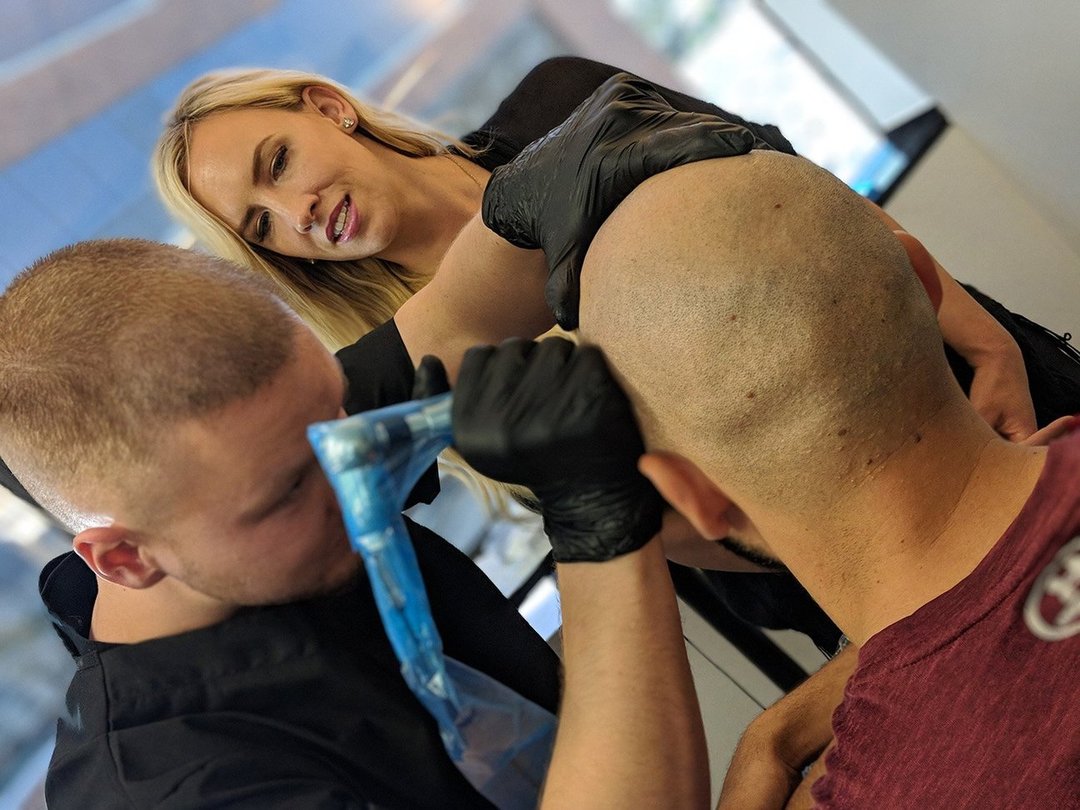FDA's Stance on SMP Pigments: Understanding the Impact
Reviewed by Zang and Ridwan
Scalp micropigmentation is highly technical and uses needles and inks to help create the appearance of hair follicles and restore hair. But how safe is this process? What is the FDA’s stand on it? Is the FDA taking action against any SMP pigments due to harmful side effects?
What is SMP?
SMP is a technique in which pigmented follicles are placed on the head to give the appearance of stubble or a thicker and fuller look. The technique is the same as getting tattoos. In this case, microdot tattoos are placed on the scalp to create the desired look.
If you follow the latest updates, you will come across news of FDA taking actions against SMP brands or pulling SMP pigments as they are found to be harmful to our health. Does the FDA consider ink pigments as a health risk? Let’s find out.
FDA and SMP pigments
There was an uproar way back in 2014 when a website published an article on how the company, White & Blue Lion was recalling all the tattoo inks and needles due to the threat of a bacterial infection.
This news was quite alarming and calls for strict surveillance of all the products related to SMP.
The problem with SMP is that there are no federal regulations on tattoo ink or the ink used in SMP. This is because the FDA has the authority to regulate substances people place on their skin but not the ones that they put under the skin. The SMP pigments are considered cosmetics and hence don’t fall under the jurisdiction of the FDA.
So, when you read articles on FDA pulling specific pigments or taking actions against any brand, please check the authenticity of the news.
However, it would be wrong to assume that the SMP companies can have a free run in using the pigments as there are FDA rules under Title 21 Parts 73 & 74, subpart D which contains a list of pigments that are safe for use in medical and surgical devices.
Many people show concern over the safety of the pigments used in the SMP process. The brands offering the SMP technique are under lens for using carcinogenic elements. Many SMP providers claim that the products they use are organic, hypoallergenic, and safe. The truth is they often don’t know what are the elements that are being used in manufacturing the products.
The most common products used in the pigments and the carriers are ethyl alcohol and propylene glycol, a petroleum derivative.
Without proper FDA regulation on the use of chemicals or mentioning the actual components on the label of the products, the onus lies on the customers to choose a reliable SMP provider to ensure the safety of the procedure.
Choose a reputed and trusted SMP brand that is in the business for a long time. Check the testimonials before hiring the service. Ultimately, it is your health and hence you should be careful.
